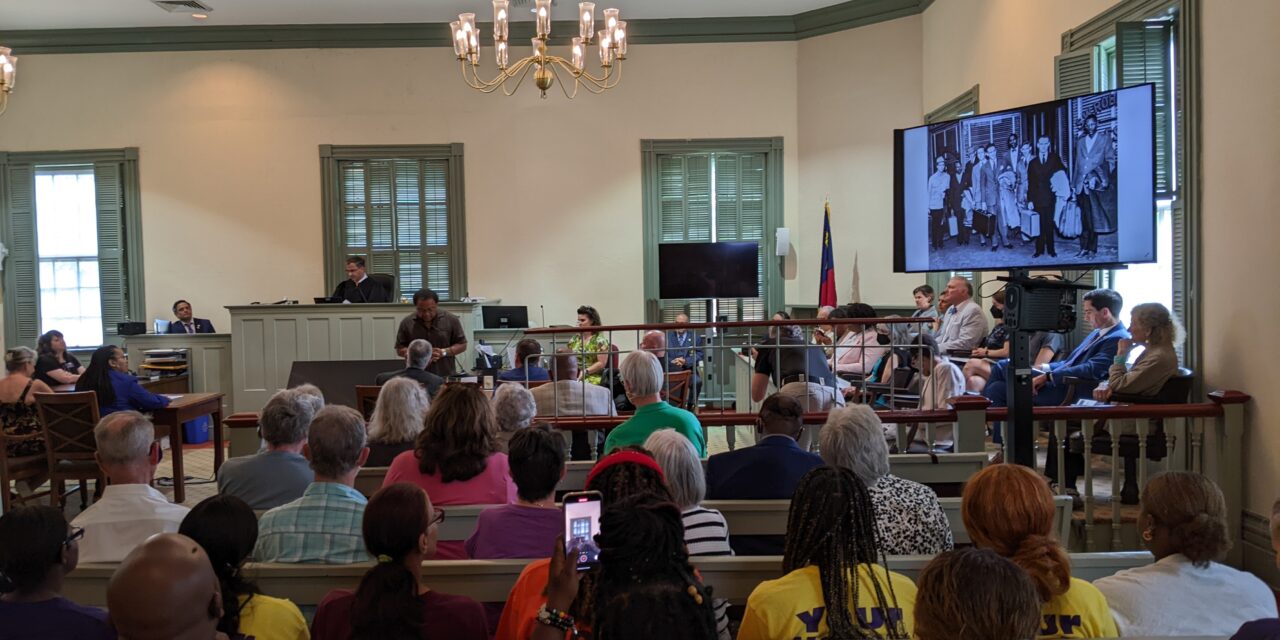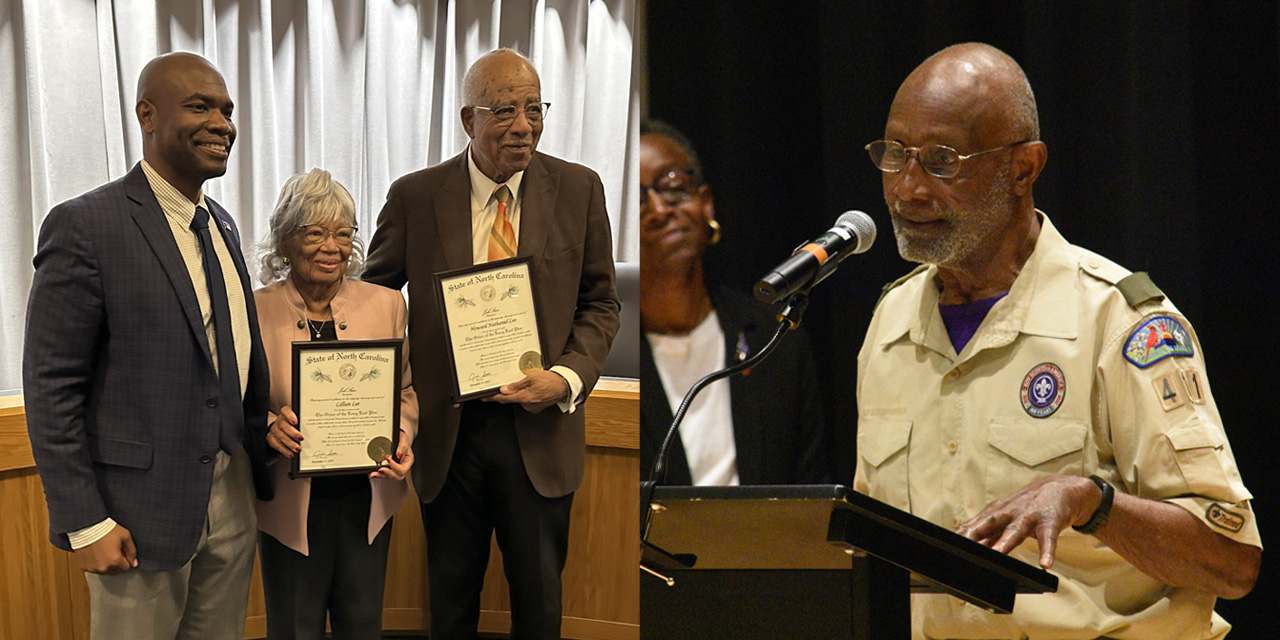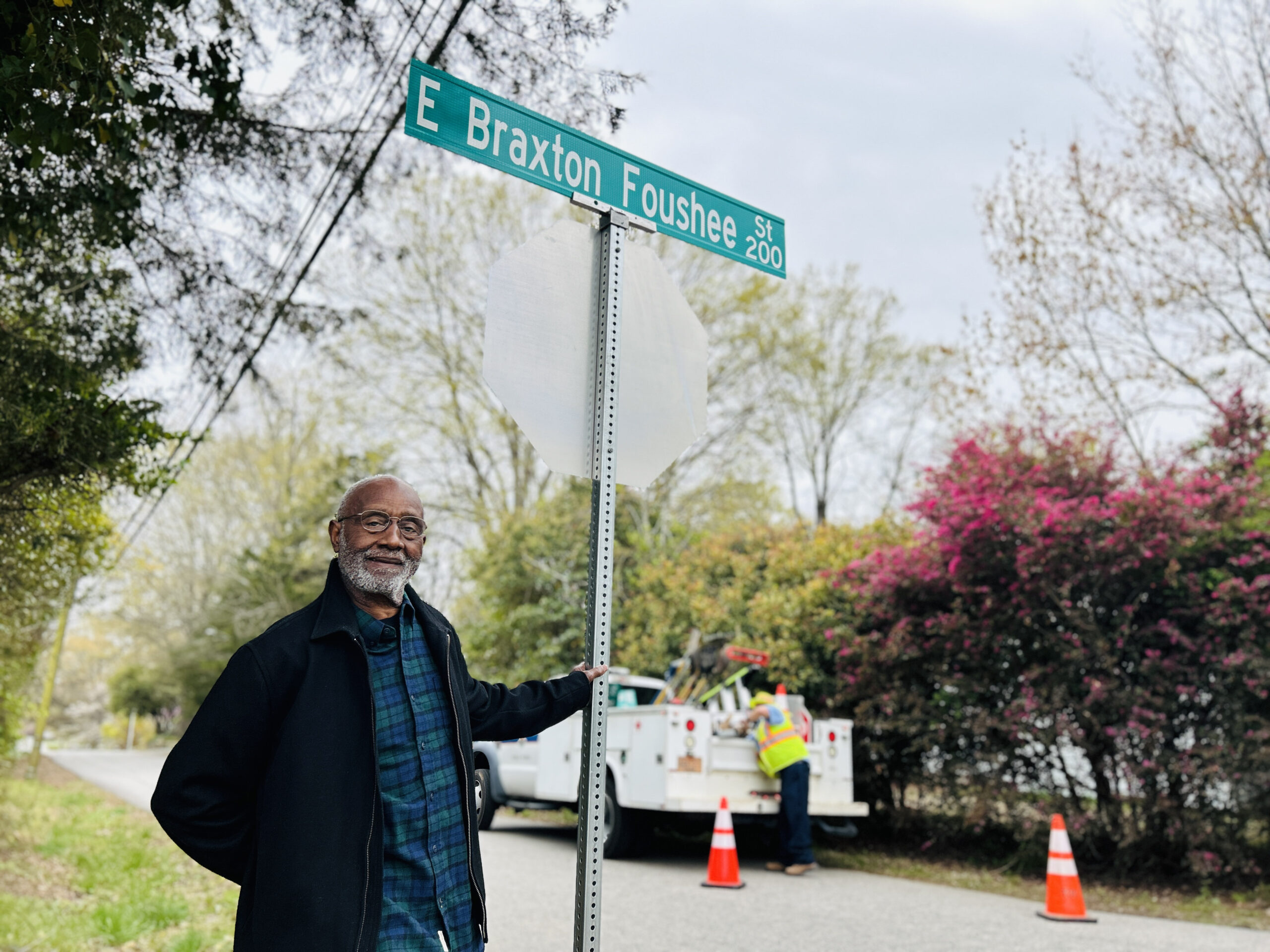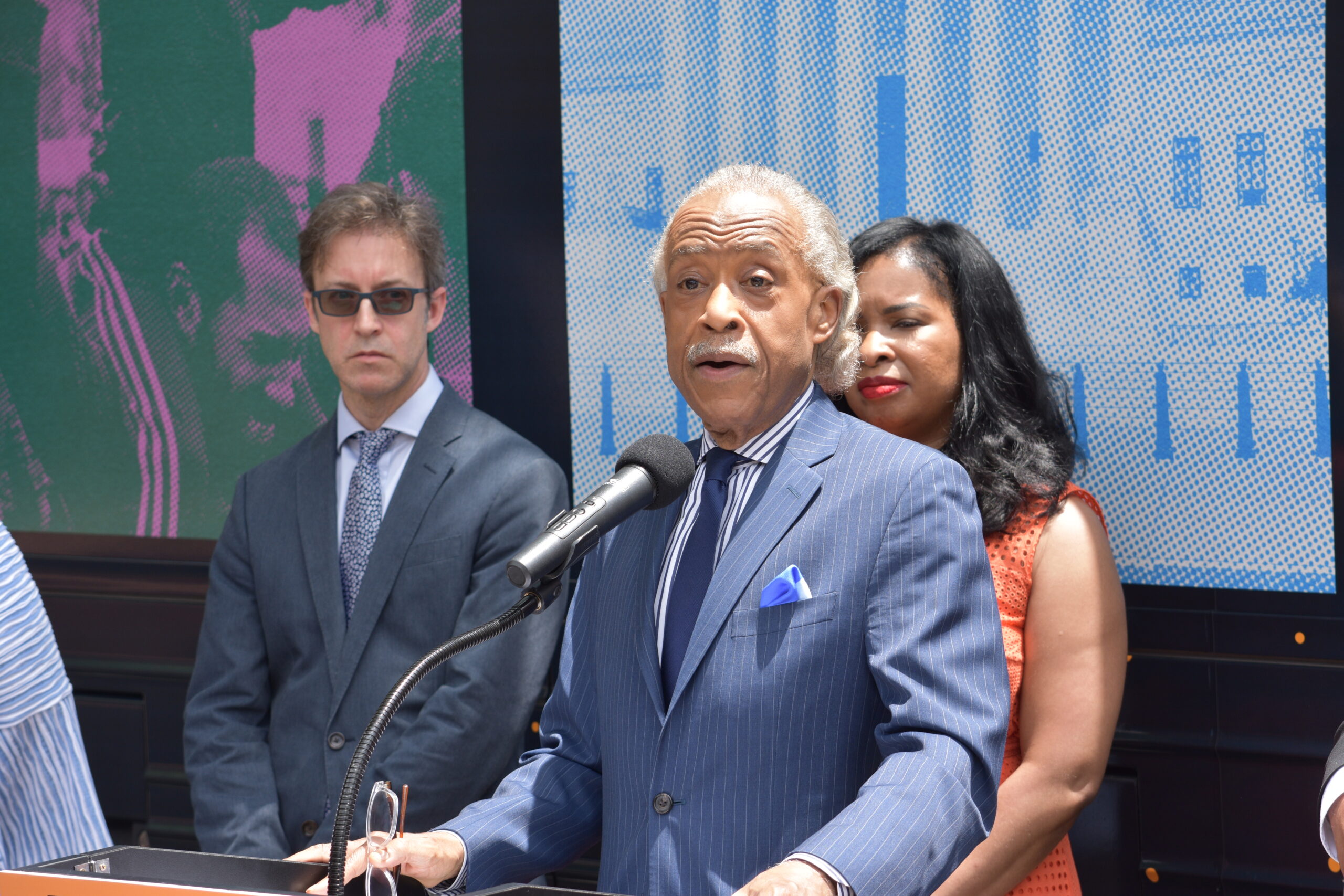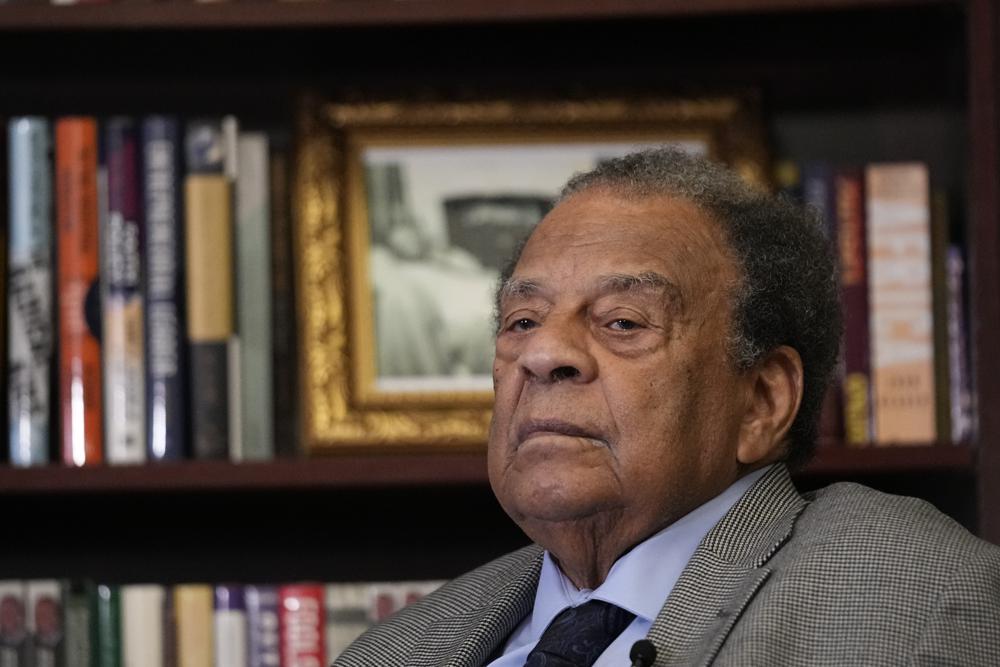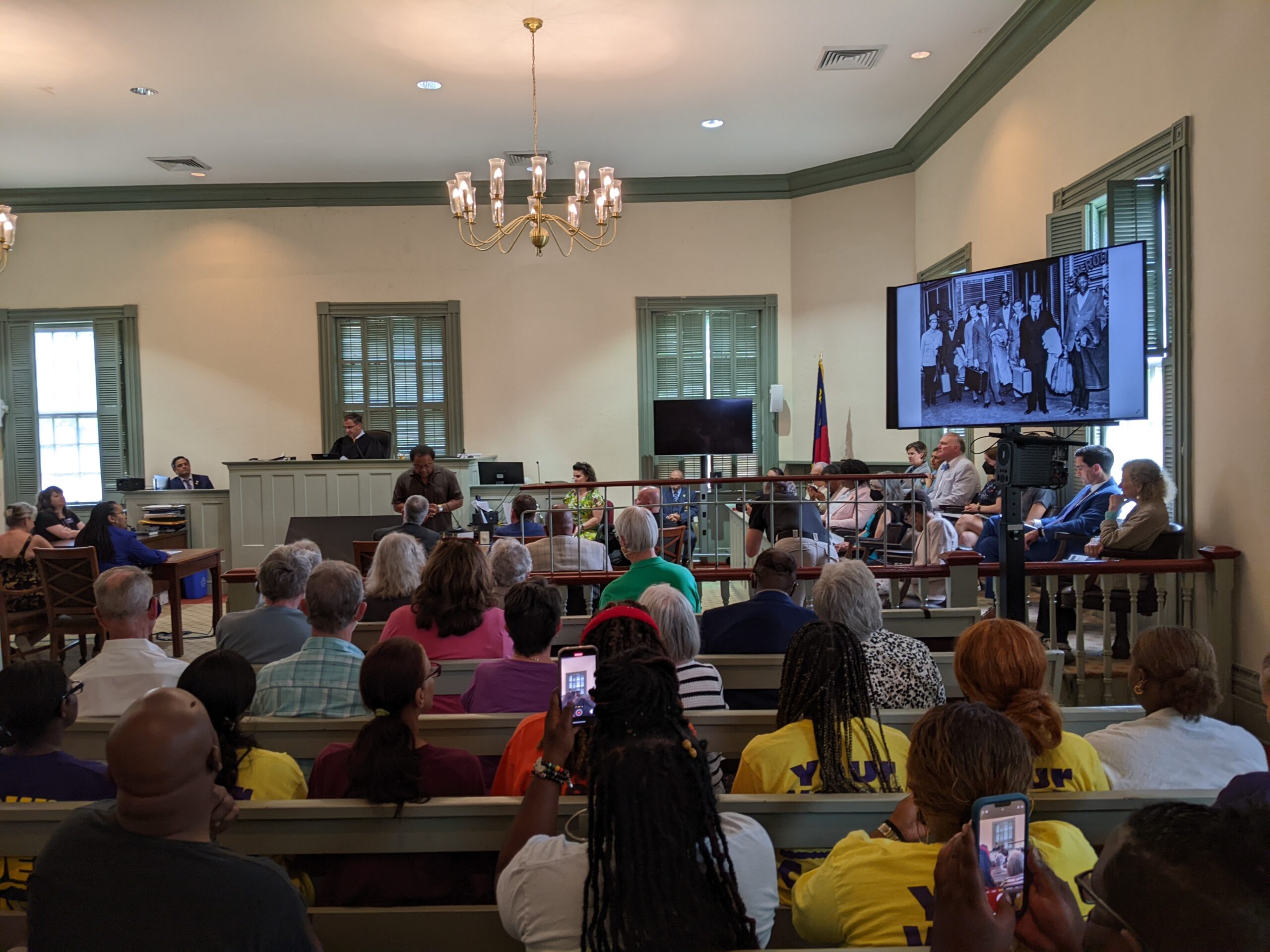While more people may remember the Freedom Riders of 1961, 16 civil rights activists helped set the blueprint for the demonstrations against Jim Crow laws in the South a few years earlier in 1947. On Friday, decades-old punishments in Orange County against four of those activists were rescinded.
Orange County Superior Court Judge Allen Baddour formally vacated charges against members of the 1947 Journey of Reconciliation, who faced violence and arrests in Chapel Hill while journeying through the community. Bayard Rustin, Igal Roodenko, Andrew Johnson and Joseph Felmet no longer have convictions for Disorderly Conduct based on their refusal to move from the front of a bus traveling from state to state.
The quartet and other Freedom Riders set out in 1947 to test the enforcement of a U.S. Supreme Court ruling that declared segregation on interstate travel unconstitutional by riding buses in different seats. The goal was to During their trip through cities in North Carolina, Virginia, Kentucky and Tennessee, the Black and white riders were often met with racism, resistance and occasionally violence. But none more so than an afternoon in Chapel Hill.
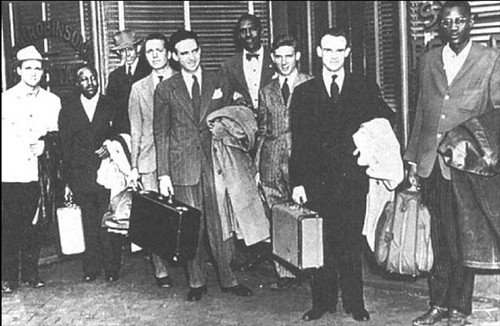
Members of the Journey of Reconciliation in 1947 included, left to right: Worth Randle, Wallace Nelson, Ernest Bromley, James Peck, Igal Roodenko, Bayard Rustin, James Felmet, George Houser and Andrew Johnson. (Photo via Orange County.)
Filings from the North Carolina Supreme Court detail how the group of Freedom Riders visited Chapel Hill on a bus and spent a Saturday night in town, largely experiencing a positive welcome. Come Sunday, though, the group faced an intense police response to their refusal to segregate while on a bus leaving town. Rustin, Roodenko, Johnson and Felmet were each arrested, charged and sentenced to serve 30 days on a chain gang. Other members of the Freedom Riders reportedly left town thanks to the work of a local pastor and UNC students.
Friday’s program praised the activism and efforts of those four men, as well as the other Freedom Riders, while posthumously clearing their names in the Orange County records. Some surviving family members and friends of the four men joined the ceremony, both in-person and virtually.
Amy Zowniriw, a niece to Roodenko, spoke at the proceedings and said the Journey of Reconciliation did not define her uncle. After his arrest in Chapel Hill, he traveled the world speaking in favor of civil rights and helping groups in need. Zowniriw read several postcards Roodenko sent her during his travels in Europe in the mid 1900s.
“If only Uncle Igal had been able to face all you wonderful people,” she said, instead of those who convicted him in that same room 75 years earlier.
While some of the ceremony focused on the trailblazing efforts of the Journey of Reconciliation, the local focus was on how the judicial system failed the quartet of arrested activists. North Carolina had a statute in place against integrated travel on buses, but the law was unconstitutional based on the 1946 national ruling of Morgan vs. Virginia. In other towns around the state, some of the Freedom Riders were arrested during their travels, but courts never charged or convicted. But in Orange County, Rustin, Roodenko, Johnson and Felmet were convicted by a grand jury in superior court and their charges were upheld by the state Supreme Court.
Baddour said those facts highlight how despite its progressive reputation, Orange County at the time faced the same problems of racism and injustice.
“We failed these men in Orange County, in Chapel Hill,” said the judge. “We failed their cause and we failed to deliver justice in our community. And for that, I apologize. So we’re doing this today to right a wrong, in public and on the record because these offenses, these events happened all over the country and very little documented evidence of the court process exists. I do not want to erase history, but we must shine a light on it.”
Many speakers, including long-time community members, admitted to not knowing about the history of these Freedom Riders in 1947. Their efforts were among the research Chair of the Orange County Commissioners Renée Price completed while studying the Freedom Riders of 1961. From there, she helped lead the push to recognize Rustin, Roodenko, Johnson and Felmet’s courage.
“The court actions this afternoon will remove another shackle of bondage from our minds, so that we may rejoice more fully in our freedom,” Price said Friday afternoon. “The events of 1947 happened for a reason. We therefore must remember, embrace and sustain a legacy of these civil rights activists, social rights advocates by our own actions.”
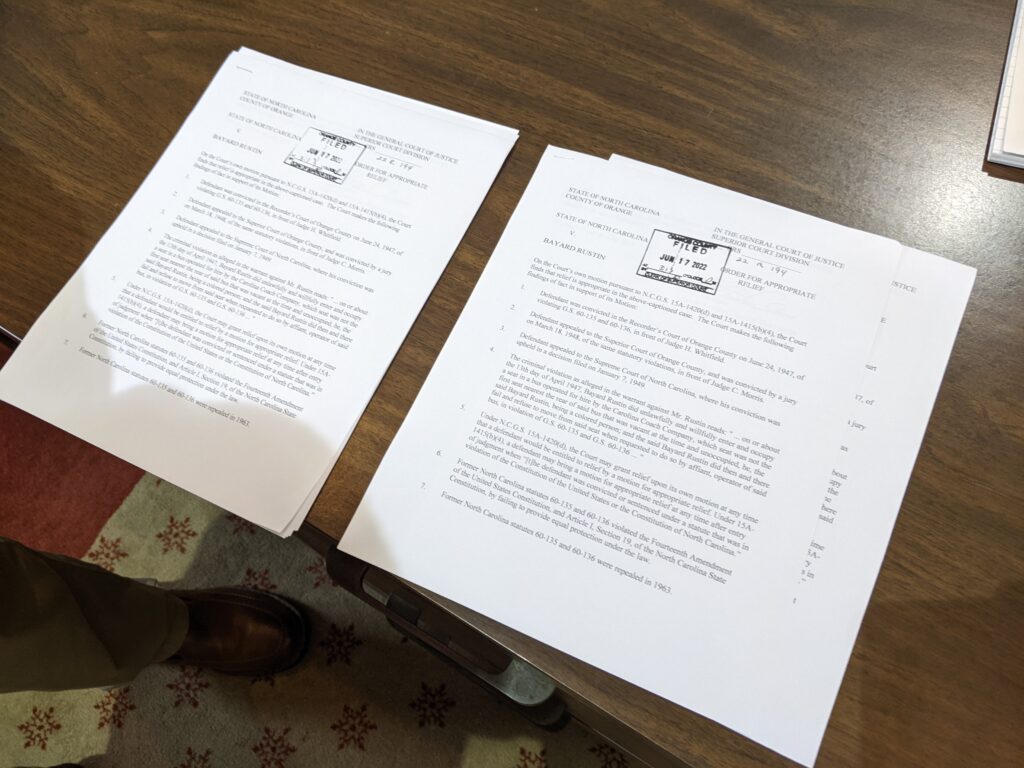
Copies of the paperwork officially vacating and dismissing Orange County charges against four members of the 1947 Journey of Reconciliation.
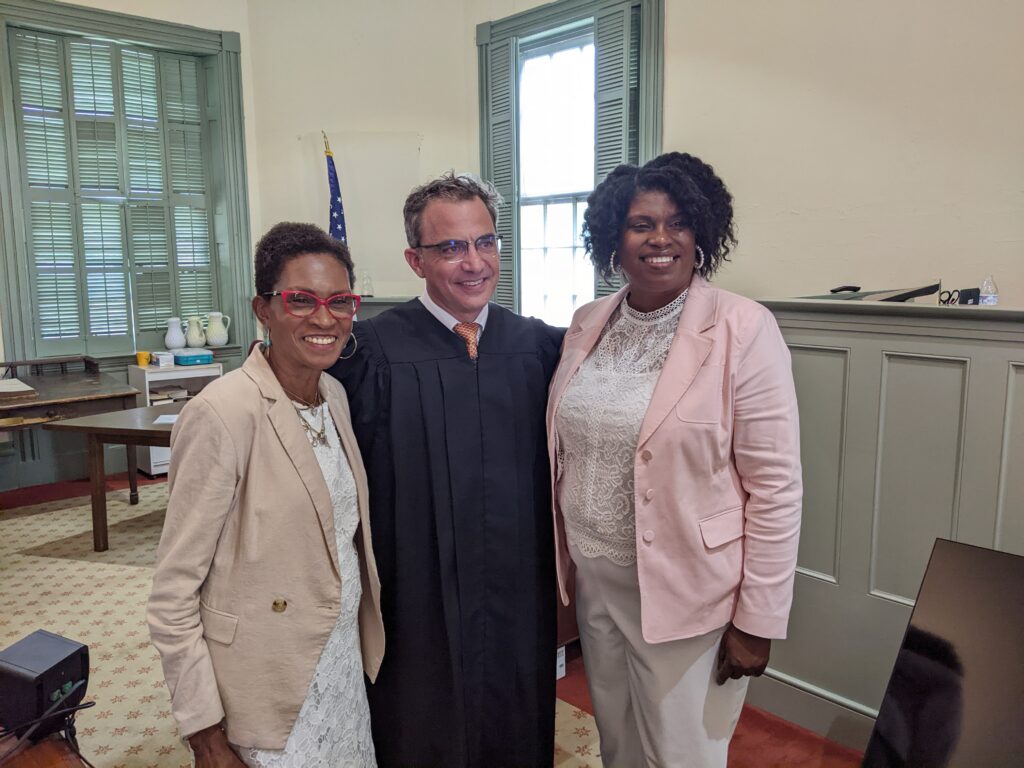
Renée Price, Judge Allen Baddour and LaTarndra Strong snap a photo together after the ceremony dismissing the charges for four Freedom Riders on June 17, 2022.
LaTarndra Strong, the President of the Northern Orange NAACP, also spoke to the legacy of the four men and other Freedom Riders. She described their demonstrations as still influencing change agents in civil rights today and said they will for years to come. She told Chapelboro the ceremony felt “almost impossible” in theory, but through great local partnerships and execution, dismissing the charges felt like “a relief for our community.”
“What I love about this particular story is that everything was intentional,” she said. “There was no doubt in their minds about being arrested. They stepped into this arena knowing that they were probably going to be physically harmed. And yet, they embraced the risk and still forged the for change because they understood that these tiny moments would have a huge impact on challenging the legislation going forward.
“To see people today have that type of courage is inspiring for me and it keeps me going,” Strong added. “Because we don’t have to face that sort of racism and the challenges that we do have to face, we can move forward know we can forge for change given the history that’s behind us.”
More information about the Journey of Reconciliation in 1947 can be found here.
Chapelboro.com does not charge subscription fees, and you can directly support our efforts in local journalism here. Want more of what you see on Chapelboro? Let us bring free local news and community information to you by signing up for our biweekly newsletter.

